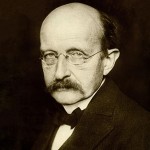Good morning, Whitewater.
Thursday in the Whippet City will be sunny with a high of fifty-two. Sunrise is 5:59 and sunset 7:46, for 13h 47m 12s of daytime. The moon is a waxing crescent with 25.6% of its visible disk illuminated.


A canonical playwright and an esteemed physicist are both born on this day (in Shakespeare’s case, this is his traditionally-observed birthday):
William Shakespeare … 26 April 1564 (baptised) – 23 April 1616)[nb 1] was an English poet, playwright, and actor, widely regarded as the greatest writer in the English language and the world’s pre-eminent dramatist.[2] He is often called England’s national poet and the “Bard of Avon”.[3][nb 2] His extant works, including some collaborations, consist of about 38 plays,[nb 3] 154 sonnets, two long narrative poems, and a few other verses, of which the authorship of some is uncertain. His plays have been translated into every major living language and are performed more often than those of any other playwright.[4]
Shakespeare was born and brought up in Stratford-upon-Avon. At the age of 18, he married Anne Hathaway, with whom he had three children: Susanna, and twins Hamnet and Judith. Between 1585 and 1592, he began a successful career in London as an actor, writer, and part-owner of a playing company called the Lord Chamberlain’s Men, later known as the King’s Men. He appears to have retired to Stratford around 1613 at age 49, where he died three years later. Few records of Shakespeare’s private life survive, and there has been considerable speculation about such matters as his physical appearance, sexuality, religious beliefs, and whether the works attributed to him were written by others.[5] Shakespeare produced most of his known work between 1589 and 1613.[6][nb 4] His early plays were mainly comedies and histories and these works remain regarded as some of the best work produced in these genres. He then wrote mainly tragedies until about 1608, including Hamlet, Othello, King Lear, and Macbeth, considered some of the finest works in the English language. In his last phase, he wrote tragicomedies, also known as romances, and collaborated with other playwrights.
It’s also Max Planck‘s birthday:
Max Karl Ernst Ludwig Planck…. April 23, 1858 – October 4, 1947) was a German theoretical physicist who originated quantum theory, which won him the Nobel Prize in Physics in 1918.[3] Planck made many contributions to theoretical physics, but his fame as a physicist rests primarily on his role as an originator of the quantum theory. However, his name is also known on a broader academic basis, through the renaming in 1948 of the German scientific institution, the Kaiser Wilhelm Society (of which he was twice president), as the Max Planck Society (MPS). The MPS now includes 83 institutions representing a wide range of scientific directions.
Max Planck’s quantum theory revolutionized human understanding of atomic and subatomic processes, just as Albert Einstein’s theory of relativity revolutionized the understanding of space and time.
Here’s the Thursday game in Puzzability‘s Breaking the Monopoly series:
|
This Week’s Game — April 20-24
|
|||||
|
Breaking the Monopoly
|
|||||
|
Go to solve. Go directly to solve. For each day this week, we’ll give you a series of clues, each of which leads to a word. You must drop one letter out of each of these answer words and put them together (in order), adding spaces as needed, to get the name of a space on a classic Monopoly board.
|
|||||
|
Example:
|
|||||
|
Square footage / home run, in slang / bad space in Monopoly / children’s author Dahl
|
|||||
|
Answer:
|
|||||
|
Reading Railroad (area / dinger / jail / Roald)
|
|||||
|
What to Submit:
|
|||||
|
Submit the space name and the smaller words (as “Reading Railroad (area / dinger / jail / Roald)” in the example) for your answer.
|
|||||
|
Thursday, April 23
|
|||||
|
